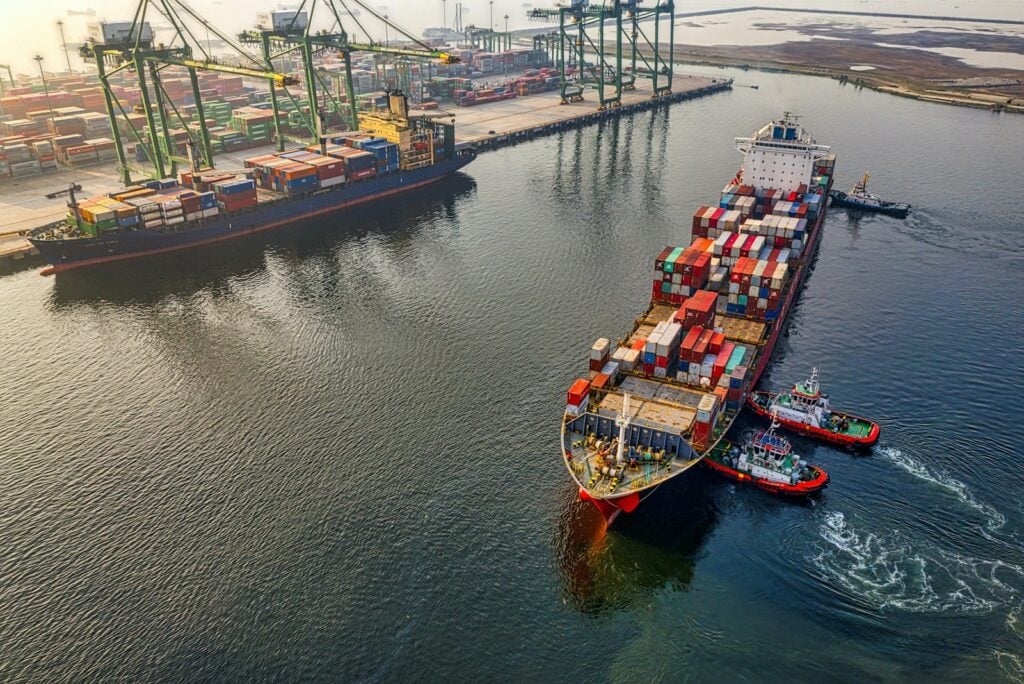Itinerant commerce plays an important role in the French economy. These commercial activities, carried out away from fixed premises, are subject to a precise regulatory framework. Although itinerant traders and fairground stallholders are often confused, they have distinct legal definitions and are subject to specific obligations.
The legal distinction between itinerant and fairground traders
The French Commercial Code makes a fundamental distinction between itinerant traders and fairground stallholders.
Legal definition of a travelling salesman
An itinerant merchant is defined in article L. 123-29 of the French Commercial Code as a person who carries out an itinerant commercial or craft activity outside the territory of the municipality in which their home or main establishment is located. This status applies to both natural and legal persons.
The essential feature of itinerant traders is that they must have a fixed abode or residence. This domicile must have been established for at least six months in France or in a Member State of the European Union.
The Code uses the classic concept of domicile defined in article 102 of the Civil Code, i.e. the place of main establishment. For fixed residence, the texts specify that this means a stay of at least six months as owner or tenant of furnished premises belonging to the tenant.
A simple stay in a hotel or the occupation of a goods warehouse does not constitute a fixed residence in the legal sense.
Legal definition of a fairground
A fairground vendor is defined as opposed to a travelling salesman. Article L. 123-29, paragraph 2 of the French Commercial Code defines a fairground trader as a person who has no fixed domicile or residence of more than six months in a Member State of the European Union.
The decree of 31 July 1970 completes this definition by specifying that it concerns a person who does not have a principal place of business within the meaning of article 102 of the Civil Code and who has not been resident in a European Union Member State for at least six months as the owner or tenant of furnished accommodation belonging to him.
Essential distinction criteria
The legal boundary between itinerant and fairground traders is therefore based on one main criterion: geographical stability. This criterion determines the applicable administrative obligations.
For itinerant traders, having a fixed address simplifies administrative formalities. For the showman, the absence of a fixed address entails additional obligations, such as the obligation to choose a the commune to which they are attached and have a travel permit.
Activities covered by itinerant merchant status
The regulations precisely define the activities covered by the status of itinerant or fairground trader.
Itinerant commercial and craft activities
According to article L. 123-29 of the French Commercial Code, only itinerant commercial or craft activities are covered. This wording covers several categories of professionals:
- Traders duly registered in the Trade and Companies Register
- Artisans registered in the register of trades
- Self-employed entrepreneurs running an itinerant commercial or craft business
The activity must have two components:
- Carrying out commercial or craft activities
- The onerous nature of the activity carried out
Activities may be carried out on a principal, ancillary or occasional basis. The legislation does not require the itinerant activity to be the professional's main source of income.
The exercise of these activities frequently involves occupying the public domain, requiring the granting of parking or road permits issued by mayors.
Activities excluded from the status
Certain activities, although carried out away from a fixed establishment, do not fall under the status of itinerant merchant. Article R. 123-208-1 of the French Commercial Code specifies these exclusions:
- Agricultural activities
- Liberal professions
- Incidental sales rounds in neighbouring municipalities from fixed establishments
- Professions subject to special regulations, such as commercial agents, press vendors, taxi operators, goods or passenger transporters, etc.
These exclusions are explained by the existence of specific legal regimes for these activities.
Special case of auto-entrepreneurs
Since the law on the modernisation of the economy of 4 August 2008, self-employed entrepreneurs running an itinerant commercial or craft business have been subject to the same obligations as traditional shopkeepers or craftsmen.
They must therefore obtain a professional licence, even if they are not required to be registered in the Trade and Companies Register or the Trades Register.
This assimilation is intended to ensure effective control of these activities and avoid the risk of unfair competition.
Changes to the applicable legal framework
There have been a number of significant developments in the regulation of itinerant activities.
History of the main regulations
For a long time, non-sedentary activities were the subject of specific legislation outside the Commercial Code:
- Law no. 69-3 of 3 January 1969 on itinerant activities
- Decree no. 70-708 of 31 July 1970 setting out the terms and conditions for applying
- A number of decrees and circulars have been issued to supplement this system
These texts were in response to a historical desire for administrative control of non-sedentary activities, which were sometimes viewed with suspicion by the public authorities.
Impact of the 2008 law on the modernisation of the economy
Law no. 2008-776 of 4 August 2008 on the modernisation of the economy radically overhauled the legal framework for itinerant trade. It incorporated the provisions relating to itinerant businesses into the French Commercial Code (articles L. 123-29 to L. 123-31).
This reform has simplified and modernised administrative procedures. In particular, it has :
- Redefined the qualification criteria for itinerant and fairground vendors
- Transferred responsibility for issuing business cards consular chambers
- Harmonised the treatment of self-employed entrepreneurs with that of traditional retailers
Coexistence of the Commercial Code and specific legislation
The originality of the current system lies in the coexistence of two complementary legislative sources:
- The French Commercial Code sets out the rules applicable to "the card authorising the exercise of an itinerant activity", which is the responsibility of the consular chambers.
- The specific texts set out the rules governing travel permits for fairground workers, which are the responsibility of the Ministry of the Interior
This duality is explained by the legislator's desire to distinguish the economic regulation of itinerant activity from the administrative control of homeless people.
The influence of European law on the itinerant trade
European law has had a considerable influence on the regulation of itinerant trade in France.
Freedom of establishment and freedom to provide services
The fundamental principles of European law, in particular freedom of establishment and freedom to provide services (Articles 49 and 56 of the Treaty on the Functioning of the European Union), fully apply to itinerant activities.
Directive 2006/123/EC on services in the internal market strengthened these principles by limiting the restrictions that Member States can impose.
French regulations have had to adapt to respect these principles while maintaining an appropriate level of administrative control.
Case law of the CJEU on itinerant activities
The Court of Justice of the European Union has clarified the application of European law to itinerant activities:
- In the Keck and Mithouard judgment of 24 November 1993, the Court held that terms and conditions of sale do not constitute barriers to the free movement of goods.
- In its judgment of 26 May 2005 (Case C-20/03), the Court ruled that an administrative authorisation for the exercise of an itinerant activity is a simple sales procedure compatible with Community law.
These decisions have preserved the essence of the French regulatory system.
Adapting French law to European requirements
The French legislator has made a number of changes to comply with European requirements:
- Community nationals fully assimilated to French citizens for the purposes of applying the status of travelling salesman
- Simplification of administrative procedures with the introduction of the one-stop-shop principle via business formalities centres
- Reducing excessive administrative constraints to facilitate the free movement of services
These changes have helped to modernise the legal system while preserving its control and protection objectives.
The legal framework for itinerant and fairground traders strikes a balance between freedom of trade and the need for administrative control. Precise knowledge of this status will enable you to carry out your itinerant activity with peace of mind and to control all your obligations. legal and administrative obligations. If you would like us to analyse your particular situation or assist you with your procedures, our firm is at your disposal for a personal consultation. personalised legal assistance in commercial law.
Sources
- Commercial Code, art. L. 123-29 et seq.
- Law no. 69-3 of 3 January 1969 on itinerant activities
- Law no. 2008-776 of 4 August 2008 on the modernisation of the economy
- Decree no. 70-708 of 31 July 1970
- Order of 21 January 2010 laying down the terms and conditions for applying the French Commercial Code to itinerant commercial and craft activities




